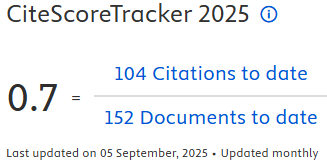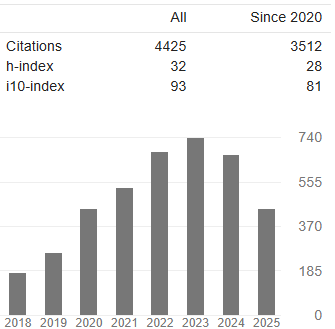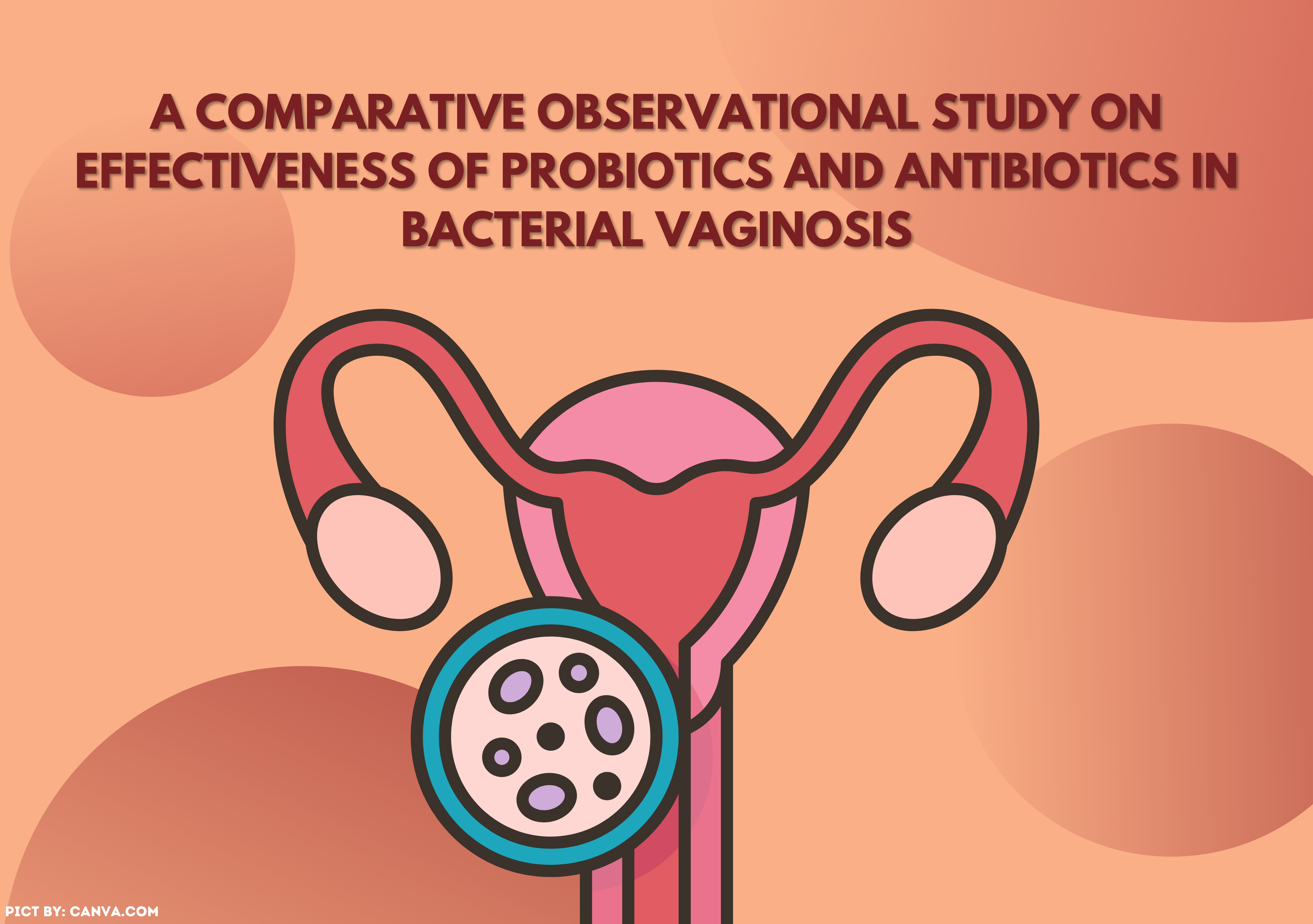AN EDUCATIONAL ASSESSMENT OF PREVENTIVE BEHAVIORS OF CARDIOVASCULAR DISEASE AMONG ADULT WORKERS WITH HYPERTENSION

Introduction: In Thailand, approximately 13 million adult workers have hypertension, with approximately 4.7% of those living in acculturated societies at a higher risk of developing cardiovascular disease (CVD). Aims: This study aims to examine the factors that predicted CVD prevention behaviors in individuals with hypertension. Methods: A cross-sectional analytical study was conducted on 1,151 adult workers with hypertension from Sukhothai Province, Thailand, using a multistage sampling technique. The measurement tools included a standardized questionnaire approved by three experts and tested for reliability using the Cronbach's alpha. A multiple regression analysis was used to identify factors that predicted CVD prevention behaviors. Results: This study involved a total of 1,151 participants, 61.90% of whom were females, with an average age of 52 years. In addition, 71.80% of the participants had a family history of CVD. The majority of the participants (73.4%) exhibited moderate levels of CVD preventive behaviors. Factors that predicted CVD preventive behaviors included self-efficacy (β = 0.423), family and social support (β = 0.162), perceived information (β = 0.119), attitude (β = 0.117), knowledge (β = 0.089), living with nuisance (β = -0.049), and family history of hypertension (β = 0.049). These predictors accounted for 39.2% of the variance (R2 = 0.392, p = 0.05). Conclusion: The intervention mapping to promote CVD preventive behaviors in adult workers with hypertension should focus on increasing self-efficacy by providing information to improve individual knowledge and attitude, as well as addressing environmental factors that may affect people's well-being, such as nuisances.
Alageel, S., Wright, A. J., & Gulliford, M. C. (2016). Changes in cardiovascular disease risk and behavioural risk factors before the introduction of a health check programme in England. Preventive Medicine, 91, 158-163. https://doi.org/10.1016/j.ypmed.2016.08.025
Amdemariam, L. K., Watumo, A. M.,Sibamo, E. L., & Agide, F. D. (2022). Perception towards cardiovascular diseases preventive practices among bank workers in Hossana town using the health belief model. PLoS One, 17(2), https://doi.org/10.1371/journal.pone.0264112
Arees, P. W., Kaewpan: Panan,Pichayapinyo: Juthatip,Silabut. (2018). Factors affecting cardiovascular disease prevention behaviors among a high risk group in Samutprakan province JOURNAL OF HEALTH SCIENCE RESEARCH 12(2), 49-58.
Banik, S. (2014). Blood pressure and incidence of twelve cardiovascular diseases: Lifetime risks, healthy life-years lost and age-specific associations in 1.25 million people. Journal of Neuroanaesthesiology and Critical Care, 1(03), 224-225. https://doi.org/10.1055/s-0038-1646112
Barry, A. R., O'Neill, D. E., & Graham, M. M. (2016). Primary prevention of cardiovascular disease in older adults. Canadian Journal of Cardiology, 32(9), 1074-1081. https://doi.org/10.1016/j.cjca.2016.01.032
Bauer, U. E., Briss, P. A., Goodman, R. A., & Bowman, B. A. (2014). Prevention of chronic disease in the 21st century: elimination of the leading preventable causes of premature death and disability in the USA. The Lancet, 384(9937), 45-52. https://doi.org/10.1016/S0140-6736(14)60648-6
Benjamin, E. J., Virani, S. S., Callaway, C. W., Chamberlain, A. M., Chang, A. R., Cheng, S., Chiuve, S. E., Cushman, M., Delling, F. N., & Deo, R. (2018). Heart disease and stroke statistics”2018 update: a report from the American Heart Association. Circulation, 137(12), e67-e492. https://doi.org/10.1161/CIR.0000000000000573
Bloom, B. S. (1971). Handbook on formative and summative evaluation of student learning.
Cheah, W., Ensayan, J. M., Helmy, H., & Chang, C. (2018). Hypertension and its association with Anthropometric indices among students in a public university. Malaysian Family Physician: the official journal of the Academy of Family Physicians of Malaysia, 13(1), 2.
Compare, A., Zarbo, C., Manzoni, G. M., Castelnuovo, G., Baldassari, E., Bonardi, A., Callus, E., & Romagnoni, C. (2013). Social support, depression, and heart disease: a ten year literature review. Frontiers in psychology, 4, 384. https://doi.org/10.3389/fpsyg.2013.00384
Department of Disease Control, M. o. P. H., Thailand. (2021). Department of Disease Control advises people to pay attention to their health measure blood pressure regularly prevent high blood pressure.
Edelman, C., & Kudzma, E. C. (2021). Health promotion throughout the life span-e-book. Elsevier Health Sciences.
Gielen, A. C., McDonald, E. M., Gary, T. L., & Bone, L. R. (2008). Using the precede-proceed model to apply health behavior theories (Vol. 4).
Green, L. W., & Kreuter, M. W. (2005). Health program planning: An educational and ecological approach.
Haines, A., Patterson, D., Rayner, M., & Hyland, K. (2007). Prevention of cardiovascular disease: Guidelines for assessment and management of cardiovascular risk. In.
Hare, D. L., Toukhsati, S. R., Johansson, P., & Jaarsma, T. (2014). Depression and cardiovascular disease: a clinical review. European heart journal, 35(21), 1365-1372. https://doi.org/10.1093/eurheartj/eht462
Health Data Center, M. o. P. H., Thailand. (2022). Prevalence rate of cardiovascular disease.
Joseph, P., Leong, D., McKee, M., Anand, S. S., Schwalm, J.-D., Teo, K., Mente, A., & Yusuf, S. (2017). Reducing the global burden of cardiovascular disease, part 1: the epidemiology and risk factors. Circulation research, 121(6), 677-694. https://doi.org/10.1161/CIRCRESAHA.117.308903
Kim, J., Jang, J., Kim, B., & Lee, K. H. (2022). Effect of the PRECEDE-PROCEED model on health programs: a systematic review and meta-analysis. Systematic Reviews, 11(1), 213. https://doi.org/10.1186/s13643-022-02092-2
Kjeldsen, S. E. (2018). Hypertension and cardiovascular risk: General aspects. Pharmacological research, 129, 95-99. https://doi.org/10.1016/j.phrs.2017.11.003
Lim, B. C., Kueh, Y. C., Arifin, W. N., & Ng, K. H. (2021). Modelling knowledge, health beliefs, and health-promoting behaviours related to cardiovascular disease prevention among Malaysian university students. PLoS One, 16(4), e0250627. https://doi.org/10.1371/journal.pone.0250627
Lu, M., Xia, H., Ma, J., Lin, Y., Zhang, X., Shen, Y., & Hravnak, M. (2020). Relationship between adherence to secondary prevention and health literacy, self-efficacy and disease knowledge among patients with coronary artery disease in China. European journal of cardiovascular nursing, 19(3), 230-237. https://doi.org/10.1177/1474515119880059
Organization, W. H. (2007). Prevention of cardiovascular disease: guidelines for assessment and management of total cardiovascular risk. World Health Organization.
Shumaker, S. A., & Czajkowski, S. M. (2013). Social support and cardiovascular disease. Springer Science & Business Media.
WHO. (2000a). The Asia-Pacific perspective: redefining obesity and its treatment.
WHO. (2000b). Obesity: preventing and managing the global epidemic. World Health Organization technical report series, 894, 1-253.
WHO. (2017). Fact sheet 310: the top 10 causes of death. In.
WHO. (2022a). Cardiovascular diseases (CVDs). Retrieved November from
WHO. (2022b, 11 June 2021). Cardiovascular diseases (CVDs). Retrieved June 20 from
Wu, C.-Y., Hu, H.-Y., Chou, Y.-J., Huang, N., Chou, Y.-C., & Li, C.-P. (2015). High blood pressure and all-cause and cardiovascular disease mortalities in community-dwelling older adults. Medicine, 94(47). https://doi.org/10.1097/MD.0000000000002160
Copyright (c) 2024 The Indonesian Journal of Public Health

This work is licensed under a Creative Commons Attribution-NonCommercial-ShareAlike 4.0 International License.
- The authors agree to transfer the transfer copyright of the article to The Indonesian Journal of Public Health effective if and when the paper is accepted for publication.
- Authors and other parties are bound to the Creative Commons Attribution-NonCommercial-ShareAlike 4.0 International License for the published articles, legal formal aspect of journal publication accessibility refers to Creative Commons Attribution-NonCommercial-ShareAlike 4.0 International License (CC BY-NC-SA), implies that:
- Attribution ” You must give appropriate credit, provide a link to the license, and indicate if changes were made. You may do so in any reasonable manner, but not in any way that suggests the licensor endorses you or your use.
- NonCommercial ” You may not use the material for commercial purposes.
- ShareAlike ” If you remix, transform, or build upon the material, you must distribute your contributions under the same license as the original.































